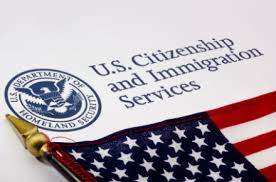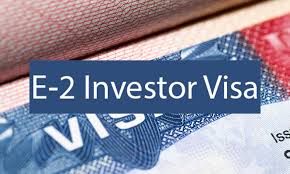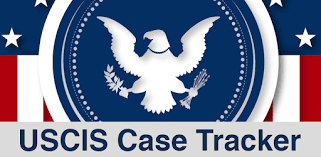POSTING DATE: April 22, 2019
Learn More About:
Immigration News & Updates eNewsletter © 2011 - 2019
For questions about U.S. Residency, Green Cards and Immigration Visas, Visit our Website at: www.ImmigrateToday.com or call our office at: (954) 382-5378
Check Out This Cool Stuff For Immigrants....
Immigration
Questions & Answers
This Week's Immigration News
Question: I have a question about my immigration papers. I put them in the mail two weeks ago certified and I did not get anything from immigration yet and they have not cashed my check. I am worried it got lost. I am wondering if I should cancel the check and resend everything or not. Please tell me what you think.
Answer: Once the USCIS receives your application, it can take 7-10 days or so to receive your immigration Receipt, called the I-797 Notice of Action and several weeks for them to cash your check or money order. Once they do, the back of the check or money order will have the case number on it and will start with three letters, followed by 10 numbers, for instance, MSC1234567890. You can check the status on the USCIS website. Another easy way to know your case was received is to include a form G-1145 with each case, in order to get a text or email message from the USCIS once your case is received, which will include the case number. Once you have your case number, you can go to the USCIS website and sign up for Email Status updates on your case through the USCIS My Case Status program. Once you register and enter your case number(s), the USICS will automatically email you notifications and updates on any actions take on your case so that you are better informed about your case status. A good tip is never, ever to send an immigration application using certified mail, since it takes such a long time to be delivered. It’s always best to use Priority Mail, which often takes about 2 days for delivery and only costs about $7.
Helpful Immigration Tips You Can Use...
Immigration News & Updates eNewsletter
eNewsletter
The USCIS issued a Policy Alert last week which directs USCIS officers to deny Naturalization applications for U.S. Residents (Green Card holders) who have violated federal controlled substance laws by using marijuana, even when such use is legal under state law, whether for medical or recreational purposes.
For background, a Resident must establish that they have had “good moral character” (GMC) for at least five years preceding the application for naturalization (or three years for spouses of U.S. Citizens).
USCIS Says Residents Who Use Marijuana Legally
Not Eligible For Naturalization
How To Successfully Answer A USCIS Request for Evidence (RFE)
A Request for Evidence (RFE) is a letter that the USCIS officer sends you to request additional information or documentation on your application. RFE requests are generally most frequently issued for missing information or documentation to establish your eligibility.
Properly responding to an RFE from the USCIS
The first tip is the most obvious, always read the RFE letter very carefully to determine exactly what kind of evidence or document is being requested. Some RFE's are more complex than the others and it is difficult to determine and some are simple and easy to understand.
Mistakes On USCIS Approval Notices
Caused By Systems Error
Failure to provide proof of child support payments is one of the most common reasons that Naturalization applications are denied every day. This often happens even when a parent has actually paid child support, but simply fails to provide evidence of payments.
Generally, Residents must show that they have “Good Moral Character” in order to be eligible for U.S. Citizenship. This covers the preceding five year period prior to applying for Naturalization for most Residents, and three years for those eligible to apply for early Naturalization through marriage to a U.S. Citizen.
Some recent USCIS Approval Notices (I-797B Notice of Action) issue by the Vermont Service Center (VSC), fail to list the name of the Beneficiary and other vital information. As a result, the USCIS plans to issue an amended notice once the error has been rectified.
Those affected should receive the new notices in the next several months. If no amended notice is received within 60 days, customers should call the USCIS 800# at: 1 (800) 375-5283
E-2 Investor Visas Available For Israeli Citizens Beginning May 1st
Under a Treaty between the U.S. and Israel, the E-2 Investor’s Visa will soon be available to Israeli Citizens who wish to invest in purchasing an existing U.S. business or starting their own business in the U.S.. The E-2 Treaty Investor Visa is a little known, but perfect visa option for many foreign investors who want to open a new business or buy an existing one in the U.S..
For qualifying investors, the E-2 is a low cost alternative to the $1 Million dollar EB-5 visa, which allows both the Investor and their immediate family members to live, work and attend school in the U.S., while operating their own business.
Question: I have a question about my citizenship. I got it through my mom because I was 16 years old when she got naturalized. I am 22 now and have my American passport, but I am not sure whether or not I need an actual citizen certificate like my mom has. Do I need to apply for one myself or is my American passport enough, thanks for your answers.
Answer: Under the Child Citizenship Act, U.S. Resident children who are under age 18 automatically obtain U.S. Citizenship when a biological parent Naturalizes. Similarly, children of U.S. Citizens who immigrate to the U.S. from abroad and enter the U.S. before turning age 18, become automatic U.S. Citizens as well. Qualifying children must be under age 18 at the time their parent actually naturalizes (takes the Oath), not the date the parent files for Naturalization. As a result, parents should carefully plan the date of filing for Naturalization to ensure that they will complete the process before their child(ren) reach age 18. Figuring about 12 months to take into account any USCIS processing delays is reasonable, under current lengthy Naturalization processing times. Importantly, even when children become U.S. Citizens through this process, the USCIS does not automatically issue a Naturalization Certificate. However, in reality, none is required, since applying for a U.S. Passport is all that is necessary to prove the child’s new U.S. Citizenship status. To obtain the child’s U.S. Passport, in addition to other information, the U.S. Passport office requires a copy of the parents’ Naturalization Certificate and proof that the child actually resides with his or her U.S. Citizen parent in order to qualify. So, you do not need to pay $1,170 to order a Naturalization Certificate, since your U.S. Passport is all you need to prove your U.S. Citizenship.
Immigration How To:
How Do I Prove I Paid My Child Support So I Can Get My U.S. Citizenship?
The USCIS position is that since federal law classifies marijuana as a “Schedule I” controlled substance which is illegal to use, posses, grow or manufacture, a Resident who does so is in violation of federal law, does NOT meet the requirements of showing they have good moral character. The policy does not provide for any negative immigration ramifications for Residents other than denial of the Naturalization for using Marijuana within five (or three) years of applying for Naturalization, however, immigrants should be aware that they may be barred from receiving a Green Card if the USCIS is made aware that the applicant for residency is or has recently used even legal marijuana.
Read the Policy Alert
When Immigrants hear “Investor visa”, they usually think of the high cost EB-5 Investor Visa, when in reality, a successful E-2 visa can be obtained for up to five years (renewable) by investing around $100,000 in your own business. A wide range of business types qualify under the E-2, including start-up, franchises and existing businesses. One of the only few requirements is that the business enterprise must be operated from a commercial location (not a home) and it must create new jobs or preserve the jobs of existing employees. However, not all business types qualify, specifically because some investments, like those in real estate do not generate jobs. To qualify, an investor must be a national of one of the treaty countries on the State Department list that has an E-2 treaty with the U.S.. Dual nationality qualifies, for instance where a national of Venezuela would not qualify, but if he or she holds a Spanish or Italian passport as well, would.
Read the list of current countries which have E visa treaties with the U.S.
Keep Track Of Your Immigration Case From Start To Finish!
The USCIS has made it much more convenient to keep updated on immigration applications from the time the case is received at the service center and throughout application processing.
Filing an immigration application is a very important step and one which should be taken with the utmost diligence and seriousness. Applicants should first educate themselves about eligibility, qualifications, procedures and timing of the case and keep updated on every aspect of process along the way.
This means filing each case properly and enclosing form G-1145 with each application separately, (by placing one form G-1145 on top of each separate form in the package), in order to receive notification by the USCIS once the case is received and being provided with a case number via text or email.
For instance, when an applicant is filing for residency, generally the application package will include several separate application forms, usually including form I-485, form I-765 and form I-131, which would necessitate a separately completed form G-1145 being placed on top of each form, so three (3) in total. This is a free service provided by the USCIS and very important to have proof of receipt and the case number for each application filed in case the actual USCIS I-797 Receipts for the filing are lost in the mail or otherwise not received. Having the case numbers allows applicants to call the USCIS 800# and request duplicate receipts by mail once the initial receipts have not been received within 30 days of filing. Receiving the case numbers via text or email also allows applicants to sign up for Email Status updates on their cases through the USCIS My Case Status program.
Once registered and the case number(s) entered into the system, the USICS will automatically email the applicant notifications and updates on any actions take to keep applicants informed about their case status.
Question: I am a green card holder since 2011 and have lost my card. I needed it recently to go get my driver’s license renewed and cant find it anywhere. The drivers license office says I have to have it or they cant renew my license which expires next week. I know I need to apply for a new card, but what do I do in the meantime to get my license renewal?
Answer: Don’t worry, this is what to do: First, file a request with the USCIS to get you a duplicate Green Card. Second, once we get the receipt, make an appointment at your local USCIS office to get you a temporary residency stamp. Third, you will take your passport with the residency stamp, along with your social security card to the department of motor vehicles to have your Driver’s License renewal issued. Issuance of your duplicate Green Card will take many months, however in the meantime, the residency stamp in your passport called an I-551, will act as your evidence of lawful residence until your new card is received.
For more complicated RFE letters, you may want to retain an immigration attorney to assist you. Once you have determined what the letter is requesting, be sure to provide the exact document requested. For instance, an officer may request a “long form” of a Birth Certificate. If you respond that you do not have one, your case will likely be denied. The appropriate action to take is to request one from the departmental authority in your country of birth.
Timing, don’t wait too long to respond to an RFE
Depending on the type of case, you may have from 33 days to 87 days to respond so that the USCIS receives your response before the expiration date. If you fail to respond or filed after the deadline, your case will likely be denied. To be on the safe side, you should always send your response by Express or Priority Mail and get a delivery confirmation. Never send any communications to the USCIS via Certified Mail, which takes much longer and can risk your response being received late. Finally, remember that your response to the USCIS officers request must be RECEIVED by the USCIS ON or BEFORE the deadline. Responses received even one day late result in complete case denials.
Obtaining a decision from the USCIS after responding to the RFE
Depending upon the case, it could take up to 60 days or more. You can check the online status to see if it is stating that your RFE response has been received, or call the USCIS 800# to ask if the computer shows the USCIS received it. For adjustment case (I-485) requests, the officer may wait to receive your response before continuing processing of your Work Authorization application which will cause delays in its issuance. To avoid this, send your response as soon as possible and do not wait until you get near the deadline in the letter.
Questions?
If you need legal assistance responding to an USCIS request, contact a qualified Immigration attorney
or call our office at: (954) 382-5378.
One of the main Citizenship requirements for a parent who does not live with his or her minor children, is demonstrating payment of support for all children whether in the U.S. or outside, until the age of 18, for the past five years. This is required whether or not there is a Court Order for child support payments. The standard is that if you are a parent and do not live with your minor children, you still have the moral responsibility to support them, even if the custodial parent does not require you to do so. This corresponds with Question 30 H of the Naturalization application asks “Have you EVER Failed to support your dependents of to pay alimony. Even when a Resident ticks off “No”, if the application lists minor children living at any address other than that of the applicant, the USCIS will generally ask for proof of child support payments for all children under the age of 23 at the time of filing the application, since you only need to prove Good Moral Character for the past five years, and payments for children up until they turned age 18. For example, if you apply for Naturalization and you have children ages 17, 19 and 24, you would need to provide evidence that you paid child support for the 17 year old for the past five years and the 19 year old for four years until the child turned age 18. No proof would be required for the 24 year old.
Naturalization applicants, who do not provide adequate proof of child support payments at their interview, later receive a USCIS notice from the officer, requesting that the additional documentation be provided. This is often a total shock to many applicants, who were not aware of the requirement to provide proof, believing that since there is no child support order from the court, they are not required to show payments. Many applicants fail to provide any or all the documents requested, which usually results in denial of the case and loss of the USCIS filing fee.
In Florida, the simplest case to prove is one in which there is a court order for child support and the applicant makes the payments through the Florida Department of Revenue. This way, there is a record of every child support payment and the applicant can get a printout showing of all support payments and provide that, along with a certified court order for child support. Those who are in arrears and are not current on child support payments, should wait until they are caught up before filing for Naturalization. Other proof includes copies of wage garnishment deductions from paychecks, cancelled checks or other proof of monthly payments.
It gets a little tricky, however, for applicants who don’t have a court order from the U.S. or other country and don’t make formal payments through a government system. In such cases, applicants should provide proof of payments for the required period, through Cancelled checks, Money Order receipts, Western Union (or other money transfers) receipts or transcripts (a history of payments by wire transfer can be ordered from western union and other companies for up to five years or more) and a notarized letter from the custodial parent that all child support has been paid and is up to date, along with a copy of their proof of identity, like driver’s license, passport biographic page, etc.
Residents who plan to file for Naturalization in the coming years, who are not currently making formal child support payments should begin to do so immediately. For those without court orders making payments inside the U.S., its best to get a signed, notarized agreement with the custodial parent, which sets out an exact monthly payment to be made. Then, make only formal, check or money order payments and save the receipts for each one, make sure and write child support on the memo line. That way, if the custodial parent later refuses to provide a letter confirming that child support is up to date, the applicant will have proof of the agreement and of all payments made. The same advice goes for those with children abroad. Get a formal agreement between the parents and begin sending regular monthly Wester Union or other transfers directly to the custodial parent, not to any other person’s name. Finally, never, ever, ever pay cash! There is no evidence of payment and even if a custodial parent writes a letter confirming child support payments, a USCIS officer can still request evidence of payments.
Proving payment of child support can be particularly problematic for those with children abroad in the Caribbean and other countries, where there is usually never a court order for child support and payments are often made casually, not formally. In a typical case, a father may pay for a child’s school, clothes other expenses, but not pay child support to the mother directly each month. In these cases, it can often be very difficult to prove child support payments. For those currently supporting children in this matter who intend to apply for Naturalization in the near future, the best advice is to start paying support in a regular, formal manner. Send monthly Wester Union or other payments in regular amounts and only send in the name of the custodial parent, not in the name of another person or family member, since there is no proof that the funds were actually paid to the parent for child support. Keep a log of the date and amount and a copy of every transfer in date order so that you don’t have to sort through them later.
The key to success with Naturalization and any other immigration matters is to learn what the requirements are and plan carefully to make sure that all the requirements are met before applying. Filing an application without this knowledge and preparation can in some cases, end up being a waste of time and money. This is especially true for proving child support, since it often requires extensive documentation, affidavits, receipts, Western Union transaction reports, which take time and a lot of effort to assemble. So the best approach is to have the documents available before filing the case. We can assist you in understanding what documents you will need to provide in your particular case, and properly present it to the USCIS on your behalf, just give us a call for a free consultation at: 954-382-5378.













